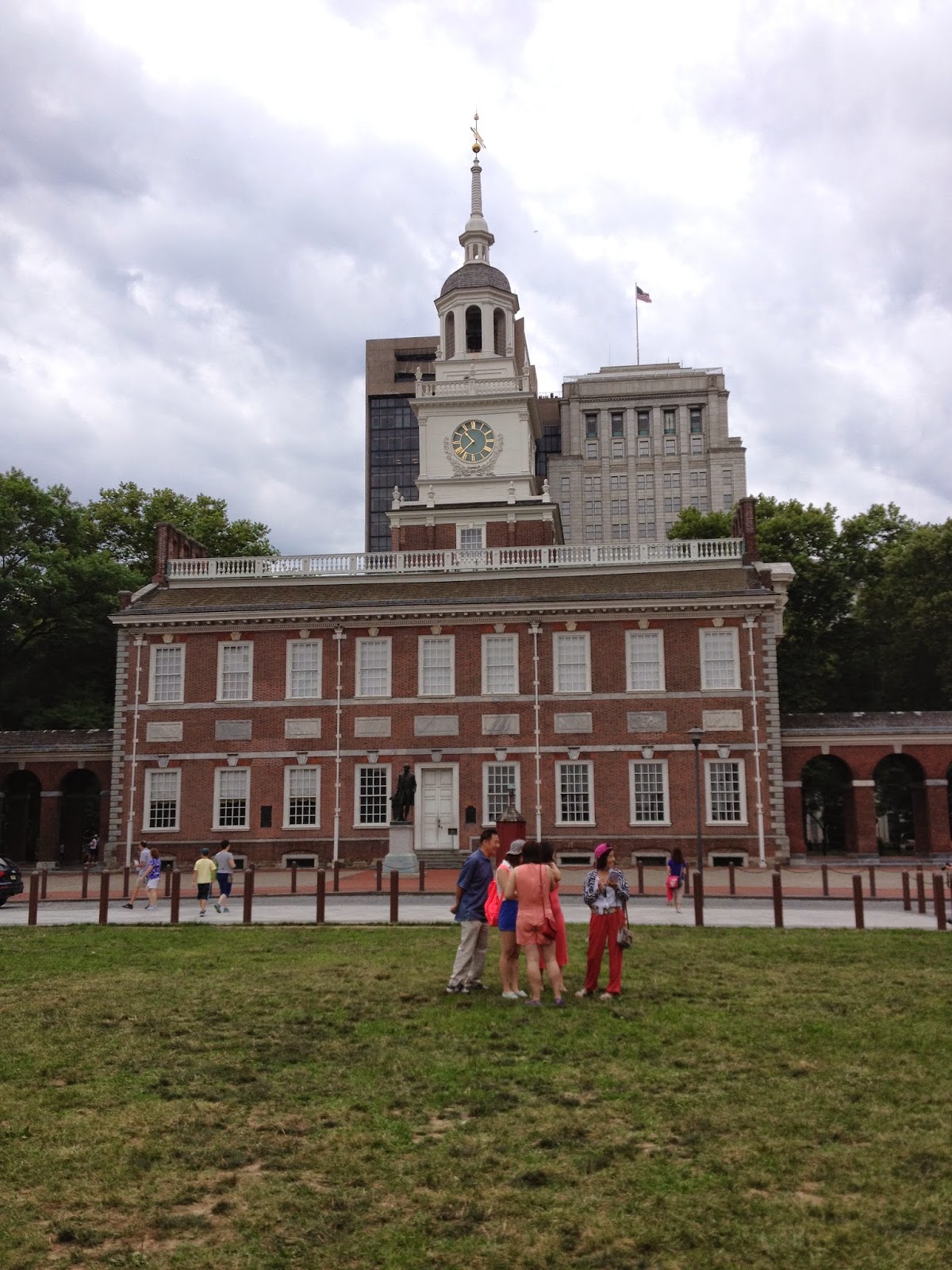Today was amazing. Class began with Qigong on the grassy area in front of the McNeil Building where class is held. This morning we went on a field trip to Society Hill, one of the most affluent sections of Philadelphia. Society Hill is an example of where eminent domain and urban renewal policies have been used to displace poorer residents. After taking Philadelphia's adorably small and antiquated trolley to Independence Mall, our guide and guest speaker, Katara introduced the major themes of today's lesson, which included the city as a spectacle, narratives of freedom, and the city as a place of struggle. As a class, we discussed one of the central contradictions of American history; that even while fighting for liberty and democracy, the founding fathers created a patriarchal, racist, and classist society.
 |
| Independence Hall, a symbol of American democracy, the site where the Declaration of Independence and the Constitution were ratified. |
As we continued to explore Society Hill, Katara taught us about urban renewal and gentrification. She told us to think about who benefits from imminent domain. Although the concept of imminent domain is hypothetically intended to be for the betterment of all, it clearly benefits only the privileged few and contributes to the marginalization of minority groups. Andy explained how neutral language is used in legal documents to target specific groups. As we walked I considered the questions that were raised at the beginning of class, in particular the role of monuments in our society and how they contribute to the popular American narrative of freedom. I was interested (and outraged) to learn that despite the abundance of monuments devoted to historical figures in Philadelphia, there is not a single monument for Thomas Paine, despite his critical role in founding the nation. The tour concluded at the historic Mother Bethel African Methodist Episcopal Church, which is the last remnant of the African American community that used to live in Society Hill.
 |
| A plaque commemorating the church's historical significance. |


No comments:
Post a Comment